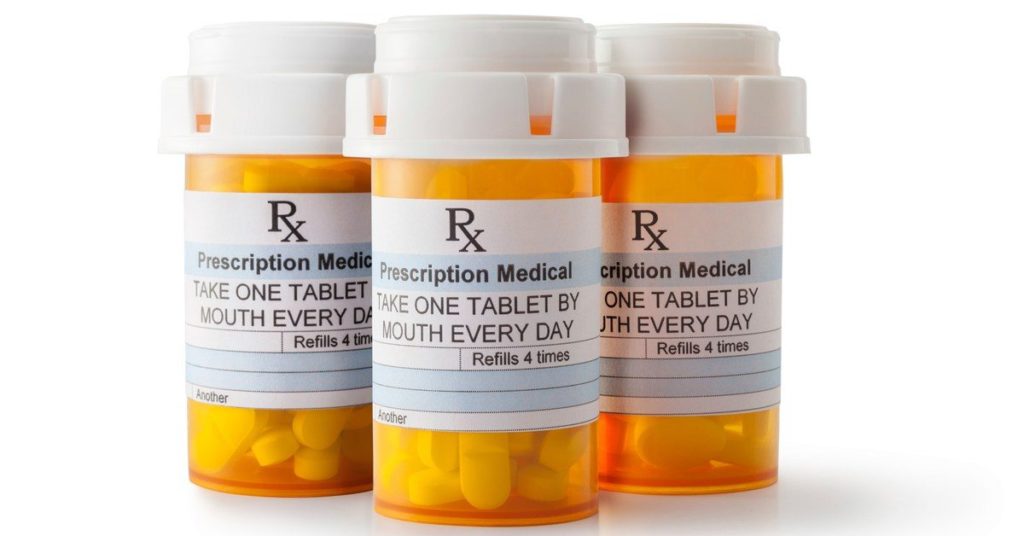
Your doctors, nurse practitioners, physician assistants, nurses and pharmacists work very hard to keep you healthy and safe. But you can also do your part to keep yourself healthy and safe when it comes to managing your medications!
Make A List And Check It Twice
Keep an up to date list of the medications you are taking, including their name, dosage, and how to take it with you at all times. It can be printed and kept in your wallet and/or on a note saved in your phone.
Keep your medication list with you at all times, so that you can provide the most up to date information when you are at your doctor’s visits and if you are ever admitted to the hospital.
Any time that your medications change, change your list too.
The More You Know, The More You Can Do
In your medication list, include prescription medications, any allergies you have, and any over-the-counter medications, vitamins, nutritional supplements or herbal products that you take regularly. By having all of this information in one place, you can ensure everything can be properly documented by your doctor’s office/hospital, and evaluated in case you are having a side effect or complication.
Make sure your caregivers know where they can get or find the most up to date version of your medication list.
Never take someone else’s medication. You don’t know if it will interact with your medications, the dose may be wrong for you, or you may be allergic to it. If you feel like you need different medications or more of them, talk to your medical team so that they can prescribe/recommend an appropriate medication for you.
For every medication you take, including over-the-counter medications and supplements, be sure that you understand who prescribed it/told you to take it, what the medication name is, when you are to take it, why you are taking it, and the best way to take it.
Know The Who, What, When, Why And How
When you start on a new medication, make sure your medical team and/or the pharmacist explains if you need to take the medication at a certain time of day, with or without food, spaced out or together with your other medications.
Read the label every time you take a dose to make sure you have the right medicine and that you are following the instructions correctly.
Different Ways To Take Your Oral Medication
Confirm with your medical team/pharmacist if you want to chew, crush, break any of your oral medications. Some medications if manipulated can have their efficacy compromised or become unsafe. For example, some long-acting medications are absorbed too quickly when chewed.
If you are prescribed a liquid version of a medication, be sure to only use the cup or measuring device that came with the medication to administer it. Unfortunately, a household teaspoon and tablespoon are not the most accurate when it comes to measurement and can lead you to under or overdose on the medication.
Storing and Handling Your Medications
Keep your medications in their original containers and do not store different pill types in the same bottle. A lot of pills look very similar, so by keeping them in their original containers you will know which is which, how to take them, and how many you have left. If you use a pill box, still keep your original bottles with a few remaining pills in them so that you can have the bottle and some pills to reference in comparison with what is in your pill box.
For certain medications, like oral chemotherapy, there are specific recommendations around how to handle the medication. If a caregiver prepares your dose for you, they should consider wearing gloves or pour the pills directly from their container into the cap, a small cup, or directly into your hand. They should avoid touching the pills. They should always wash their hands before and after giving you the medication. Pregnant or nursing women should not prepare the dose for you.
It is recommended that you do not keep medications in the bathroom or in direct sunlight. Factors such as dampness, humidity, heat and light can affect a medications potency and safety. Additionally, keep medications where children and pets cannot see or reach them. It is best, if you are able, to keep medications for different family members and pets separate, and also to keep ointments/creams stored away from where you keep your toothpaste to avoid mix ups!
There Are No Silly Questions
Finally, if you are unsure about something, if there are any doubts about your medications and why you are taking them, how to take them, if your medications look or make you feel different it is best to be cautious and ask! It never ever hurts to ask or double check!
About the Author
Christine Cambareri is an Oncology Clinical Pharmacy Specialist with more than 5 years of experience working exclusively with the oncology patient population. She is a board certified pharmacotherapy specialist and a board certified oncology pharmacist. Christine helps to take care of patients with solid tumor types, providing education and counseling on chemotherapies, side effect management and serves as a drug information resource for her patients and providers.